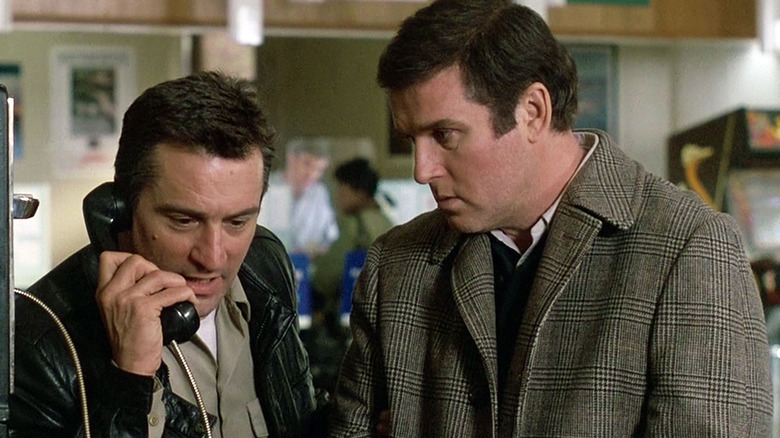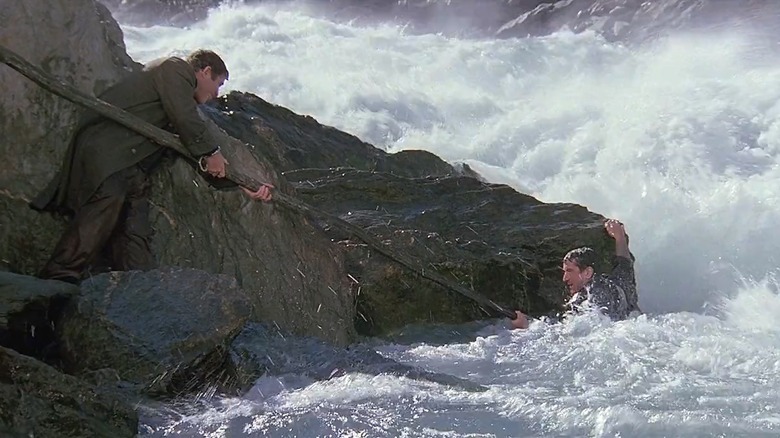Making Midnight Run Was So Grueling, The Director Ended Up In The Hospital
Making movies is hard, unglamorous work. It requires a functional collaboration between hundreds of people who specialize in wildly different disciplines, and it's all overseen by one person who must maintain a clear channel of communication with dozens of assistants and department heads to make sure everyone is on the same page and, god willing, on schedule.
Some people handle the stress better than others. Clint Eastwood apparently doesn't break a sweat bringing movies in ahead of schedule and under budget (albeit occasionally underlit and conceptually half-assed). On the flip side, Werner Herzog allegedly pulled a gun on his recalcitrant star Klaus Kinski during the making of "Aguirre: The Wrath of God."
As for Martin Brest, the critically acclaimed director of "Midnight Run" and "Scent of a Woman," the pressure of completing a film can prove physically draining. This is evidently one reason why he's only made seven movies over his 46-year career. Though he's worked almost exclusively in the studio realm, he forms a personal attachment to his movies and resists even the slightest compromise. Sometimes it pays off and sometimes you make "Gigli."
When it came to the making of "Midnight Run," the length and scope of the project left Brest such a wreck that he had to check into a hospital.
If you want to have a long career in filmmaking, try to stay alive to make the next movie
In Todd Gilchrist's career-spanning interview with the press shy Brest for Variety, the director revealed that the making of his two-hander masterpiece, starring Robert De Niro as a dogged skip tracer and Charles Grodin as an on-the-lam mafia accountant, was a particularly taxing ordeal. As he told Gilchrist:
"It shot for almost a hundred days, and it was six-day weeks with the seventh day, either a travel day or a travel and scouting day, because we were in 14 different cities, constantly moving. After we were finished, I actually had to go to the hospital."
That's taxing work for a film that, in the end, has such a deft comedic touch. You can definitely see the effort (there are stunts involving cars, trains, helicopters, and a banged-up prop plane), but each viewing is such a delight that most people probably never stop to ask how difficult it was to shoot your leads in raging Arizona rapids (the answer: so difficult they had to shoot the scene in New Zealand, where the water was warmer).
This kind of exhaustion was nothing new for Brest. "I would just get so anxious my appetite would get suppressed and I would get very thin," he said. When he completed his AFI film, "Hot Tomorrows," he'd withered away to 118 pounds (an alarming state given Brest is a man of average human height).
It's laudatory to pour yourself into your art, but it's advisable not to give so much that you need to hit up an emergency room once you've wrapped. If nothing else, that's a rotten way to cede the final cut.

